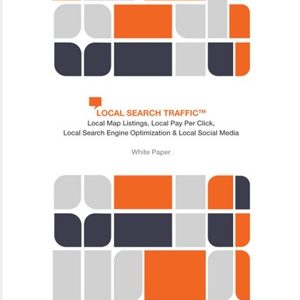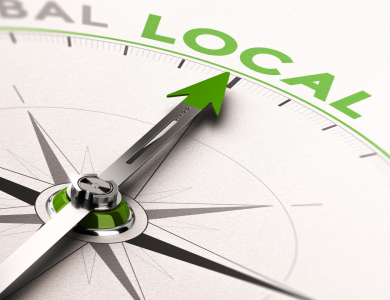
The hotel industry has been highly competitive for a long time, with individual hotels and chains vying against online travel aggregators (OTAs) and price comparison booking sites.
In the past year, Google has ramped up its presence in this market with several changes to how hotels are displayed in search results:
– Google Adds Hotel Bookings to Search Results
– Google Local Search Grades Hotels Based on Location
– Google Redesigns the Hotel Search Experience on Desktop
Along with new search features, Google has introduced special content result blocks, such as Google Hotels.
Many hotels use comparison sites out of necessity due to the significant traffic and bookings these websites generate. However, this comes at a hefty price. For example, a bed and breakfast in Whitby, England, spent over £8,000 in fees for bookings via travel comparison websites, significantly impacting their margins in an already competitive market.
It’s essential to note that leisure and business travelers differ, and not all journeys from research to booking are linear. However, search engines like Google still play a crucial role in this process.
Attracting direct bookings is invaluable in such a competitive marketplace.
Fortunately, there are many local SEO tactics and strategies that hotels can leverage to:
– Increase prominence in search results at various user journey stages.
– Boost their traffic.
– Ultimately convert that traffic into bookings.
Let’s explore how to enhance your rankings and increase traffic for relevant search terms.
### Optimize Your Website’s Content & Structure
#### Start with Keyword Research
Your hotel’s website may organically rank for several terms through its location and content. However, understanding exactly what your target audience is searching for can elevate your website, driving more traffic and bookings.
#### Create Better Local Content
Once your keyword research is complete, it’s crucial to create local content that not only promotes your rooms and services but also includes non-commercial supporting content. This bolsters the relevance of your hotel website both as an accommodation provider and in its association with the geographical area.
Consistency is key when producing supporting content, regardless of the frequency you choose.
#### Optimize Your Title Tags & Meta Descriptions
Unless your hotel is a well-known brand that invests in extensive marketing campaigns, it’s unlikely many people are searching for your hotel’s name. Title tags still significantly influence how highly Google ranks your content. Ask yourself if your brand name is taking up valuable space that could be used for targeted keywords—append your brand name at the end of the title tag if space allows.
Meta descriptions, while not directly influencing rankings, can impact click-through rates.
### Make the Most of Google My Business
Through keyword research, you’ll note that people often search for hotel-related phrases with location-specific keywords (e.g., [cheap hotels in Whitby]). This signals a clear localized intent to Google, often resulting in Map Pack listings within the search results.
An optimized Google My Business listing increases your chances of appearing in the Map Pack and as a blue link listing. Use Google My Business to:
– List your hotel’s name, address, and phone number (NAP).
– Ensure the Google Maps marker is correctly placed.
– Display unique photos of your hotel, rooms, and facilities.
– Show and respond to guest reviews.
– Provide any additional details, such as availability of Wi-Fi or disabled access.
For multiple hotel locations, maintain verified Google My Business listings for each one through a single account.
### Optimize Your User Journey & Booking Process
With increased competition for SERP real estate and more qualified traffic coming to your website, it’s crucial to optimize the user journey and booking process.
#### Make CTAs Obvious
Your contact information should be easily accessible, with clear calls to action (CTAs) on all key landing pages.
#### Streamline Contact Forms & Payment Gateways
Collect only necessary information through online forms. Simplified forms can boost conversion rates, particularly on mobile devices. Keep the booking process streamlined, with fewer clicks to maximize completion rates.
Monitor the performance of your forms to identify where users abandon them. Tools like Yandex Metrica, which is GDPR-compliant, offer features such as form analysis, heatmaps, and user session recording to help with this.
#### Make Sure Pages Load Fast
Fast page loading speeds are crucial to prevent user abandonment. Images are often the culprit behind slow load times; ensure they are optimized and compressed appropriately.
### Opportunities with New Technologies
Voice search and artificial intelligence (AI) offer new avenues for customer acquisition and engagement. The Clarion Hotel in Stockholm, for example, uses an AI-enabled chatbot “butler” via Amazon Echo to assist guests. This AI assistant can handle tasks such as ordering cabs and room service, accessing online information, and more.
These technologies provide new touchpoints outside of traditional search, helping attract direct customers and bypass OTAs.
Voice search and AI are progressing rapidly in the travel sector. The Henn na Hotel in Tokyo, for instance, utilizes robots and minimal human staff, showcasing a move toward more autonomous customer service.
### More Resources:
– Local SEO: The Definitive Guide to Improve Your Local Search Rankings
– 9 Types of Content That Will Help Your Local SEO
– How to Use Local Keywords to Rank Higher on Google
### Image Credits
All screenshots by the author, February 2019



